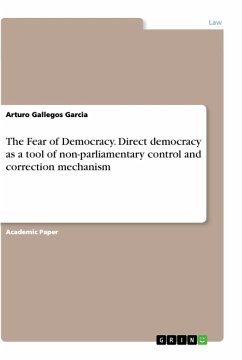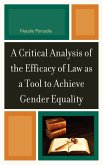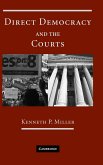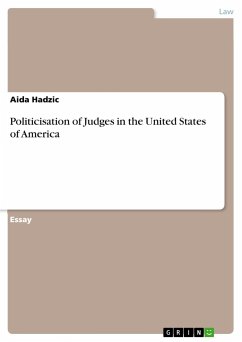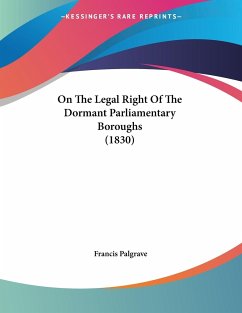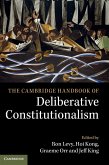Academic Paper from the year 2018 in the subject Law - Miscellaneous, , language: English, abstract: Ever since the establishment of today´s well known democratic free elections and its indirect representation´s system, the question of checks and balances has been raised. The institutional approach to the problem of balance between the government and the people lays on the parliament as representative of the late. Sadly the ever more intricate relationship between government, parliaments and pressure groups had let the people without efficient tools of control over the government. This research tries to explore both parliamentary and non-parliamentary control mechanisms and to explain why is it that the first is unable to accomplish its task and the later a much more effective and democratic tool is. Special attention is to be set over direct democracy as the only control mechanism in which the people can express its will not through a collectivist form but as an individual, making this form of participation the most democratic and legitimate. The electoral process to form a parliament and the control mechanisms that the later possess above the executive are both regarded as a synonym for democracy. However, such mechanisms have many flaws of both procedure and nature. Little research has been done in the science of law about alternative mechanisms of control, the so called "non-parliamentary controls". This paper explores the advantages of these, such as the media, public opinion, pressure groups, etc., but specially direct democracy through referendums and plebiscites. This is done by comparative research were a highly developed European Parliamentary System (Germany) is to be confronted with an underdeveloped Latin American presidential system (Mexico), coming to the conclusion that both systems could be very benefitted from a higher degree of direct democracy. The inclusion of this form of participation should be a requirement of any modern society toconsider itself as democratic.
Bitte wählen Sie Ihr Anliegen aus.
Rechnungen
Retourenschein anfordern
Bestellstatus
Storno

